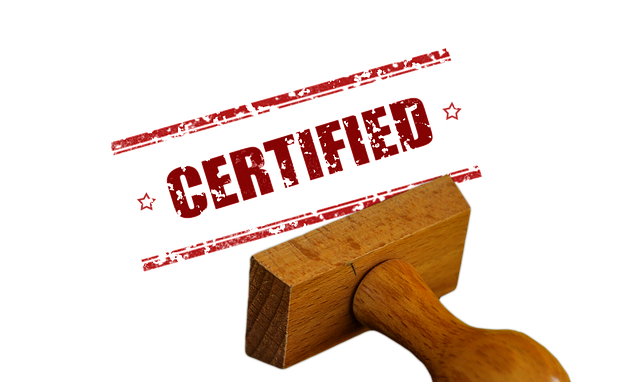Starting your own home inspection business can be a lucrative and rewarding venture for those with a keen eye for detail and a passion for real estate. If you are looking to start a home inspection business, it is essential to understand the steps involved.
In this article, we will guide you through each major step, from understanding your target market to scaling your home inspection business for long-term success.
Understand Your Target Market

Before diving into the world of the home inspection businesses, it is vital to determine your target market. Research the local housing market, demographics, and the demand for home inspection services in your area. This information will help you tailor your business strategy to meet the specific needs of your target audience.
The Local Housing Market
One of the first things you should research is the local housing market. This includes looking at the current trends in home buying and selling, as well as the overall health of the real estate market in your area. By understanding the state of the housing market, you can better position yourself to meet the needs of potential clients.
Demographics
Take the time to research the age, income level, and lifestyle preferences of the people in your area. This information will give you valuable insights into the types of homes they are likely to own or be interested in purchasing.
For example, if your research shows that there is a growing population of young professionals in your area, you may want to focus on offering services that cater to their specific needs, such as pre-purchase home inspections for first-time homebuyers.
Demand
Another important aspect to consider is the demand for home inspection services in your area. Are there already established home inspection companies, or is there a gap in the market that you can fill? By understanding the level of competition and demand, you can better position your business to stand out and attract clients.
Furthermore, it is essential to consider the unique characteristics of your target audience. Are there any specific challenges or concerns that homeowners in your area face? For example, if you live in an area prone to natural disasters, such as hurricanes or earthquakes, you may want to specialize in disaster preparedness inspections.
Research

Overall, taking the time to thoroughly research and understand your target market is crucial for the success of your home inspection business. By tailoring your business strategy to meet the specific needs of your audience, you can increase your chances of attracting and retaining clients in a competitive industry.
Understanding the Home Inspection Regulations in Your Area
When starting a home inspection business, it is crucial to familiarize yourself with the home inspection regulations in your specific area. These regulations vary from region to region, and it is essential to understand and comply with them to ensure that your business operates legally and ethically.
Governing Bodies
One of the first steps in understanding the home and inspection process and regulations is to research the specific requirements set forth by the governing bodies in your area. These requirements may include licensing procedures, certifications, and educational prerequisites. By thoroughly researching these regulations, you will have a clear understanding of the steps you need to take to establish your own home inspection business.
Regulations
It is important to note that home inspection regulations are in place to protect both the homebuyers and the home inspectors themselves. These regulations aim to ensure that home inspectors are qualified and competent to assess the condition of a property accurately. By adhering to these regulations, you are not only safeguarding your clients but also establishing trust and credibility within the industry.
Understanding the home inspection regulations in your area will help you navigate any legal and ethical challenges that may arise during your business operations. By staying informed about the regulations, you can avoid potential legal issues and maintain a high level of professionalism.
Stay Updated
Home inspection regulations undergo changes and updates over time. Therefore, it is essential to stay updated with any amendments or new requirements that may be introduced. This can be achieved by regularly consulting the governing bodies, attending industry conferences, and networking with fellow home inspectors.
Legality and Ethics
By understanding and complying with these regulations, you not only ensure the legality and ethics of your operations but also establish trust and credibility within the industry. Stay informed, stay updated, and provide top-notch service to your clients.
Qualifications and Certifications

Becoming a certified and licensed home inspector adds credibility to your business and reassures potential clients. It demonstrates your commitment to professionalism and your dedication to providing quality services.
Investing in relevant training and certifications is an essential step towards enhancing your knowledge and expertise in the field professional home inspector.
When it comes to home inspections, there is always something new to learn. The industry is constantly evolving, with new technologies, materials, and building codes being introduced regularly. By pursuing additional training and certifications, you can stay up-to-date with the latest trends and best practices in the home inspector field.
ASHI (US Based)
One popular certification program for home inspectors is offered by the American Society of Home Inspectors (ASHI). ASHI’s certification is widely recognized and respected in the industry. It requires passing a comprehensive exam that covers various aspects of home inspection, including structural systems, electrical systems, plumbing systems, and more.
InterNachi (US Based)
In addition to ASHI, there are other reputable organizations that offer certifications for home inspectors, such as the International Association of Certified Home Inspectors (InterNACHI) and the National Association of Home Inspectors (NAHI). These organizations provide comprehensive training programs and resources to help you enhance your home inspection school skills and knowledge.
Joining professional organizations is also highly beneficial for home inspectors. These groups provide access to industry experts, instructional materials, and networking opportunities. By being a part of these associations, you can stay connected with other professionals in the field, exchange ideas, and learn from their experiences.
Many inspectors and professional organizations often host conferences, seminars, and workshops where you can further expand your knowledge and skills. These events feature industry leaders and experts who share their insights and provide valuable information on the latest developments in the home inspection industry.
Ethics & Standards of Practice
Another advantage of joining professional organizations is that they often have strict codes of ethics and standards of practice. By adhering to these codes and standards, you can ensure that you are providing the highest level of service to your clients. It also helps in building trust and credibility with potential customers and clients, as they know you are committed to upholding professional standards.
In conclusion, investing in relevant training and certifications, as well as joining professional organizations, is crucial for home inspectors. These steps not only enhance your knowledge and expertise but also demonstrate your commitment to professionalism and continuous improvement. By using proper training and staying updated with industry trends and standards, you can provide the best possible service to your clients and stand out in a competitive market.
A Business Mentor
Consider finding a business mentor to learn from.
Do you need a legal entity?
Decide whether you want to set up your home inspection business as a sole proprietorship, partnership, or corporation. Consult with a legal professional to determine which the legal business structure is best suited for your specific needs and to ensure compliance with local laws and regulations.
When starting a home inspection business, it is important to carefully consider whether you need to establish a legal entity. This decision will have significant implications for your business, including liability protection, tax obligations, and the ability to attract investors and raise capital.
Sole Proprietorship
A sole proprietorship is the simplest and most common form of business structure. It is an unincorporated business owned and operated by a single individual. As a sole proprietor, you have complete control over your business and its operations. However, you are personally liable for all business debts and obligations. This means that if your business is sued or incurs debts, your personal assets may be at risk.
Partnership
A partnership is another option for structuring your home inspection business. In a partnership, two or more individuals share ownership and management responsibilities. There are two main types of partnerships: general partnerships and limited partnerships.
In a general partnership, all partners have equal rights and responsibilities.A limited partnership consists of limited partners who provide capital but have limited liability and general partners who oversee the operation of the company.
Corporation
Forming a corporation (or company) is a more complex process but offers greater personal liability and protection from personal liability. A corporation is a separate legal entity from its owners, known as shareholders.
As a shareholder, your personal assets are generally protected from business liabilities. However, corporations are subject to more regulations and formalities, such as holding regular board meetings and maintaining corporate records.
Take Legal Advice
Before making a decision, it is crucial to consult with a legal professional who specializes in business law. They can assess your specific circumstances and advise you on the most suitable legal structure for your home inspection business. They will consider factors such as the size of your business, the number of owners, your long-term goals, and the potential risks involved.
Additionally, consulting with a legal professional will ensure that you comply with all local laws and regulations. Each jurisdiction may have specific requirements for establishing and operating a home inspection business. Failing to comply with these regulations can result in fines, penalties, or even the suspension of your business operations.
Furthermore, a legal professional can guide you through the process of registering your chosen name form a legal entity. This may involve filing the necessary paperwork with the appropriate government agencies, obtaining any required licenses or permits, and fulfilling any ongoing reporting or compliance obligations.
Ultimately, the decision to establish a legal entity for your home inspection business is an important one. It is a step that should not be taken lightly, as it can have long-lasting implications for your business’s success and your personal financial well-being.
By seeking professional advice and carefully considering your options, you can make an informed decision that best aligns with your goals and protects your interests.
Open a Business bank account

Establishing a separate bank account for your home inspection business is crucial if you want to keep your personal and business funds apart. This will help you stay organized and make tax preparations much more manageable.
When starting a home inspection business, one of the first steps you should take is to open a bank account specifically for your new business. This dedicated account will serve as a central hub for all your financial transactions related to your home inspection services.
By separating your personal and business finances, you create a clear distinction between your personal expenses and the income and expenses of your business. This separation is crucial for accurate bookkeeping, financial reporting, and tax purposes.
The Know Your Customer Documentation
When you open a business bank account, you need to supply supporting information like business registration documents, identification, and proof of address. The specific requirements may vary depending on the bank and your location, so it’s essential to check with your chosen bank beforehand.
Once you have gathered the necessary documents, you can visit your chosen bank branch or complete the account opening process online, if available. Many banks now offer convenient online account and business credit card opening options, allowing you to save time and complete the process from the comfort of your home or office.
Select a Bank
When selecting a bank for your business account, it’s important to consider factors such as fees, account features, and customer service. Look for a bank that offers competitive fees and charges, as well as features that align with your business needs. Some banks may provide additional benefits for small businesses, such as discounted transaction fees or specialized business banking services.
Having a dedicated bank account for your home inspection business will not only help you stay organized but also make tax preparations much more manageable. With all your business income and expenses in one place, you can easily track your financial performance and generate accurate reports for your annual tax filing purposes.
Professional Image
Furthermore, having a separate bank account can also enhance your professional image. When clients make payments to your business, they can do so directly into your own, small business owners’ account, which adds a layer of professionalism and credibility to your services.
Startup costs and Run Costs
Make sure you have enough capital to cover your initial startup costs and run costs for at least 6 months, to give you a chance to build your successful home inspection business.
Secure Liability and Omissions insurance
Home inspections carry a certain level of risk, so it is crucial to have adequate insurance coverage protect yourself and your business. Obtain a home inspection business insurance, general liability insurance, and omissions insurance to safeguard against any potential claims or lawsuits.
Create a Brand
You can educate prospective clients about your company’s values, the range and quality of services you offer, and the advantages of choosing you to perform their house inspection by building your brand. Build a strong brand identity that communicates professionalism and expertise.
Come up with a memorable new business’ name, design a logo, and develop a consistent visual identity that reflects your values and sets you apart from competitors.
Creating a Home Inspection Business Plan
A solid business plan acts as a roadmap for your home and inspection company and business. Outline your business structure, mission, goals, marketing strategies, and financial projections. This document will help guide your decisions and attract potential investors or lenders.
What Equipment is Needed to Begin a Home Inspection Business?
Invest in high-quality, industry-standard equipment such as moisture meters, infrared cameras, electrical testers, and more. These tools are essential for conducting thorough and accurate inspections.
Network With Realtors and Real Estate Agents

Building strong relationships with realtors and other real estate agents themselves is crucial for generating referrals and securing clients. Attend networking events, join local associations, and consistently deliver exceptional service to establish yourself as a trusted partner in the real estate industry.
Finding Clients for Your Home Inspection Business
Implement a comprehensive marketing strategy to attract clients. Utilize online platforms, such as your social media accounts and search engine optimization, to increase your online visibility.
Additionally, consider offering promotional discounts or referral incentives to encourage word-of-mouth recommendations.
The Benefits of Investing in Professional Home Inspection Software

Streamline your business operations and improve efficiency by investing in professional home inspection software. These platforms enable you to create detailed inspection reports anywhere, schedule appointments, manage client data, and generate insights to help your business thrive.
Crafting a Comprehensive Home Inspection Report
A well-written and detailed inspection report is essential for conveying your findings to clients. Use clear language, include supporting visual materials, and provide recommendations for any identified issues. This detailed written reports will help clients understand the condition of the property and make informed decisions.
Developing Effective Pricing Strategies for Your Home Inspection Business
Set competitive yet profitable pricing for your services. Consider factors like location, property size, and additional services offered when determining your rates. Conduct market research to ensure your prices align with industry standards and are attractive to potential clients.
Promoting Your Home Inspection Business Online
An online presence is vital in today’s digital age. Create a professional website that showcases your services, testimonials, and contact information. Leverage social media platforms to engage with your audience, share informative content, and respond promptly to inquiries.
Create a Business Website
A well-designed and user-friendly website is an essential marketing tool for your home inspection business. Include information about your services, client testimonials, and a clear call-to-action to encourage inquiries and bookings.
Its a good idea to read up on Google Search engine optimisation (SEO) and other marketing skills.
The Boring Bit
Don’t forget to pay self employment taxes, submit financial statements, and do those one hundred and one boring things. Make a schedule of when these tasks have to be done by.
How To Scale

Once your own home inspection company or business is thriving, you may consider expanding your operations or hiring additional inspectors. Set clear goals, establish efficient processes, and continuously evaluate your business to ensure scalability without compromising quality or customer satisfaction.
By following these steps and maintaining a strong commitment to professionalism and excellent service, you can start and grow a home inspection business.
Tips for Maintaining A Home Inspection Company
Ensure long-term success by providing exceptional service and exceeding client expectations. Maintain open lines of communication, continuously update your knowledge and skills, and seek feedback to improve your business processes.
Remember one simple rule for a successful business: income has to exceed business expenses!
To Conclude – How to Start A home Inspection Business
Remember, the journey may have its challenges, and start-up costs, but with determination and the right strategies, you can create inspection reports that can provide a valuable service to homeowners and contribute to the real estate industry.
The reality check is that many home inspection businesses fail. But if you plan, work hard, and follow our tips you can reduce that risk.
From single home inspector to multi inspector businesses every home inspector business varies – but they all share passion and customer care at their heart.
We wish you every success in creating your own business!
Additional Reading
What to look for when doing a home inspection
The Best Software Solutions for Home Inspections
More Helpful Content
Visit our Homepage
